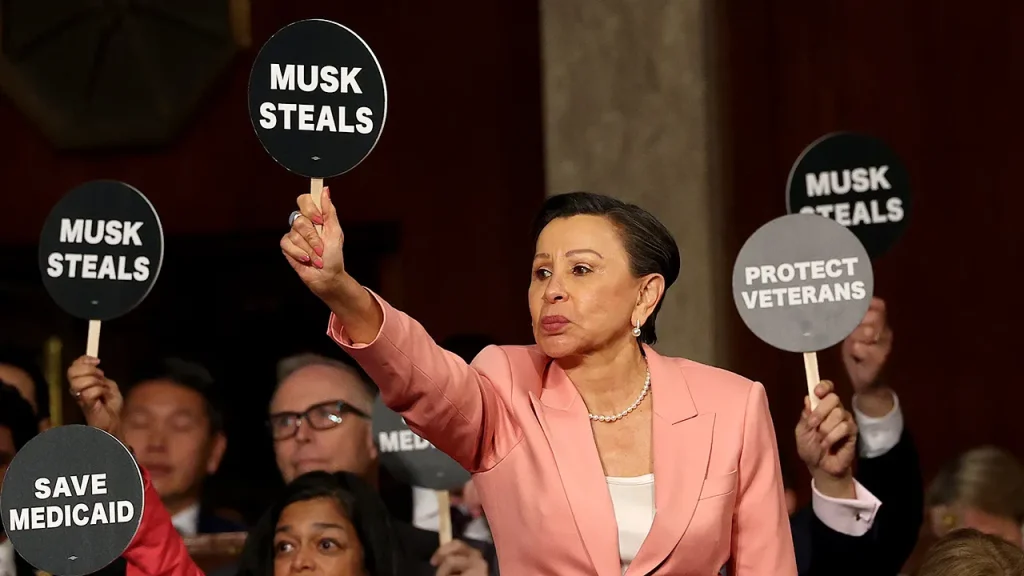Listen to the article
In a significant development for New York politics, Democratic Rep. Nydia Velázquez announced she will not seek re-election in 2026, bringing an end to more than three decades of service in Congress. Velázquez, who made history as the first Puerto Rican woman elected to Congress, has been a prominent progressive voice since taking office in 1993.
“For more than three decades, I have had the privilege of a lifetime serving the people of New York City in the United States Congress,” Velázquez said in a statement. “After much reflection, I have decided that this will be my last term in Congress. This was not an easy decision, but I believe that the time is right for me to move on and for a new generation of leaders to step forward.”
The announcement marks the departure of one of the longest-serving Democratic representatives and a founding member of the Congressional Progressive Caucus. Throughout her tenure, Velázquez has been a strong advocate for economic opportunities in underserved communities, small businesses, and Puerto Rican affairs.
In her statement, Velázquez didn’t shy away from politics, criticizing the Trump administration for what she described as efforts to “undermine civil rights and our democracy.” Her comments reflect the increasingly polarized political landscape she has navigated during her final years in office.
Fellow New York Democrat Rep. Jerry Nadler, who earlier this year also announced he would not seek re-election in 2026, praised Velázquez on social media. “It has been a great honor to work with my colleague, friend, and fellow New Yorker,” Nadler wrote on X. “The first Puerto Rican woman elected to Congress, Nydia ‘La Luchadora’ has been a progressive trailblazer and fighter for her district, the poor, and Puerto Rico.”
Both Nadler and Velázquez are longtime members of the Congressional Progressive Caucus, representing a generational shift now occurring within the Democratic Party. Their departures signal a changing of the guard in New York’s congressional delegation, which has long been dominated by veteran lawmakers.
Velázquez’s Brooklyn-based 7th Congressional District encompasses parts of Brooklyn, Queens, and Manhattan’s Lower East Side. The district, which includes diverse neighborhoods like Williamsburg, Bushwick, Sunset Park, and parts of Chinatown, is heavily Democratic, ensuring the seat will likely remain in Democratic hands after her departure.
During her time in Congress, Velázquez became the first Puerto Rican woman to chair a full congressional committee when she led the House Small Business Committee. She has been a vocal advocate for small business interests, affordable housing, and immigration reform.
Her retirement adds to a growing list of congressional Democrats who have announced they will not seek re-election in 2026, creating opportunities for younger, more diverse candidates to enter federal politics. This generational transition comes as Democrats attempt to build a new bench of leadership following their return to the minority in the House after the 2024 elections.
Political analysts suggest that Velázquez’s announcement, along with Nadler’s earlier this year, reflects a broader recognition within the Democratic Party of the need for leadership renewal. Both lawmakers have served in Congress since the early 1990s, representing an era of Democratic politics that is gradually giving way to newer voices and perspectives.
Velázquez’s legacy as a trailblazer for Latina women in politics and her decades of service to New York City communities will likely be remembered as significant contributions to the progressive movement and Latino representation in American politics.
Fact Checker
Verify the accuracy of this article using The Disinformation Commission analysis and real-time sources.




10 Comments
Veteran politicians stepping down is always noteworthy. I’ll be interested to see how Eshoo’s departure affects the balance of power in Congress, especially with regards to issues around mining, energy, and commodities.
Eshoo has been a strong advocate for her constituents over the years. Her replacement will have big shoes to fill in terms of representing the interests of the district.
It’s not surprising to see a long-serving member of Congress like Eshoo decide to retire. After three decades, she’s likely ready to pass the torch to a new generation of leaders. I wonder what her future plans are.
Eshoo’s departure could open up new opportunities for candidates with expertise in mining, energy, and commodity issues to run for her seat. It will be interesting to see how the race shapes up.
After 30 years in Congress, Rep. Eshoo has likely seen a lot of changes in American politics. I’m curious to learn more about her legacy and what she hopes to accomplish in her final term.
Eshoo’s decision not to run again opens up an opportunity for new leadership. I wonder if this could lead to a shift in the political landscape of her district.
Eshoo’s decision not to seek re-election is a significant shift in the political landscape. As a founding member of the Congressional Progressive Caucus, her voice has been influential on a range of issues. I’m curious to see how her successor will approach those priorities.
The mining, energy, and commodity sectors will be closely watching the race to replace Eshoo. Her successor will likely play a key role in shaping policies that impact those industries.
This is an interesting development in US politics. Rep. Eshoo has been a long-serving Democrat and it will be curious to see who steps up to fill her seat. I wonder what her reasons are for not seeking re-election after three decades in Congress.
Eshoo has been a prominent progressive voice, so her departure could impact the dynamics within the Democratic party. It will be important to follow who emerges as a potential successor.